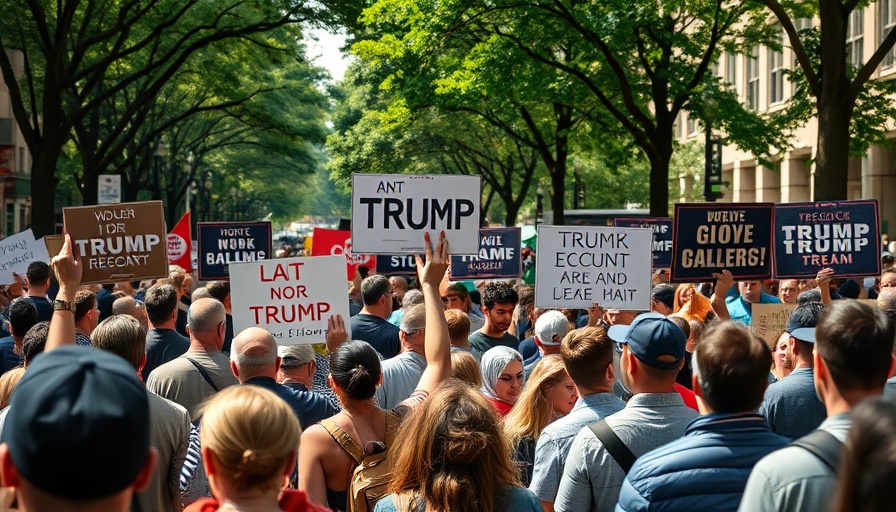
A Call to Action in San Antonio: The 'No Kings' Movement
On a bustling Saturday morning, the vibrant colors and voices of protesters filled Travis Park in downtown San Antonio, all converging for a common cause: to voice opposition against the Trump administration's policies. The demonstration was part of a larger, nationwide movement known as 'No Kings,' aimed at advocating for equality and justice amid ongoing immigration crackdowns. This gathering, though a single event, represents a wave of dissent breaking across the nation, drawing attention to contentious policy issues affecting diverse communities.
Understanding the 'No Kings' Movement
The 'No Kings' protest signifies a stance against what proponents describe as autocratic governance and policies that disproportionately impact marginalized groups, particularly in regards to immigration. Participants came together in solidarity, challenging the direction in which the country is headed under the current administration. This sentiment is amplified by recent reports of Immigration and Customs Enforcement (ICE) agents making arrests near courthouses around the city, causing concern and fear among many residents.
A Trend of Activism Across the Nation
San Antonio's protest is mirrored by similar gatherings in cities across the United States, highlighting a rising trend in community activism motivated by national issues. Each rally reinforces the idea that citizens will no longer remain passive as policies that threaten their rights and safety are enacted. This grassroots mobilization showcases how local communities can impact national discourse, creating a path for change through collective voices. Events like this one not only signify resistance but also foster connections among individuals sharing common values and hopes for the future.
Local Context: San Antonio's Heightened Tensions
With Texas Governor Greg Abbott's recent deployment of National Guard troops in anticipation of protests, the climate in San Antonio has shifted. The government's military presence, intended to maintain order, may inadvertently amplify fears among community members, particularly those within immigrant populations. This added layer of complexity to the protests underscores an ongoing concern regarding civil liberties, public safety, and governmental power.
The Emotional Landscape of Activism
As individuals joined together in Travis Park, they brought with them a shared experience of frustration, hope, and a desire for change. The emotional weight of such gatherings often extends beyond the political sphere, as they serve as communal catharsis points, where people can express their outrage and longing for justice. For many attendees, the cause isn't just about policy; it's deeply personal and often reflective of their own experiences and struggles within a system perceived to be unjust.
Implications for the Future
The 'No Kings' protest and others like it are likely to affect future political landscapes, especially in local contexts like San Antonio. As community leaders take notice of the turnout and the energy fueling these movements, the conversations surrounding local politics may shift dramatically. Increased engagement could lead to more informed local elections and initiatives aimed at directly addressing constituents’ needs, showcasing how protests can serve as platforms for local advocacy.
What Comes Next?
While demonstrators have left Travis Park, the dialogue ignited during the protest will continue. For those intrigued by the developments or looking to engage further, consider attending local town hall meetings or discussions related to immigration policies and community safety. Become an active participant in shaping a more equitable future for all residents of San Antonio.
For those seeking timely updates on similar local events or further insights into these issues, stay connected with San Antonio community news outlets. Local journalism plays a crucial role in keeping residents informed and engaged, ultimately fostering a more vibrant civic ecosystem.
 Add Element
Add Element  Add Row
Add Row 



 Add Row
Add Row  Add
Add 


Write A Comment